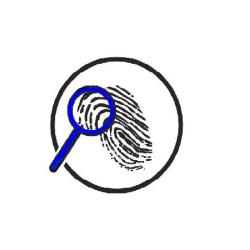Source Institutions
Source Institutions
Add to list Go to activity
Activity link broken? See if it's at the internet archive

In this activity, learners examine fingerprints. Learners leave a hidden print on a surface and then make their own print detecting powder from graphite (found in pencils). The next phase of the activity focuses on how to isolate the fingerprints that we leave behind, and the best types of powder to use when looking for fingerprints. Extensions provided on pages 7 and 8 look at different surfaces, powders that are involved in taking fingerprints, and even catching a thief. Part of the 21-activity guide published by OMSI, No Hassle Messy Science with a Wow. All activities in this guide use household materials and all lesson plans include preparation directions, demonstrations, procedure sheets, cross-curricular connections, and scientific explanation of content.
- 10 to 30 minutes
- 10 to 30 minutes
- $1 - $5 per group of students
- Ages 8 - 14
- Activity, Experiment/Lab Activity, Lesson/Lesson Plan
- English, Spanish
Quick Guide
Materials List (per group of students)
- mechanical pencil leads
- clear tape
- paper (notebook or printer )
- sealing plastic bags (i.e.Ziploc™)
- markers, pens, other hard cylinders
- white paper (printer)
- small paintbrushes (watercolor)
- fingerprinting surfaces: glass and plexiglas work best; metal, magazine paper, shiny cardboard, plastic are also good
Subjects
-
Life Sciences
-
Human Body
- Muscles and Skin
-
Human Senses and Perception
- Touch
-
Human Body
-
Physical Sciences
-
Electricity and Magnetism
- Electric Charges and Currents
- Chemistry
-
Structure and Properties of Matter
- Elementary Particles and Nuclear Physics
-
Electricity and Magnetism
Informal Categories
- Crime Science
Audience
To use this activity, learners need to:
- see
- read
- touch
Learning styles supported:
- Involves hands-on or lab activities
Other
Foreign language versions of this resource:
Components that are part of this resource:
Includes alignment to state and/or national standards:
Access Rights:
- Free access
By:
- Oregon Museum of Science and Industry
Rights:
- All rights reserved, Oregon Museum of Science and Industry, 2007
Funding Sources:
- National Science Foundation
- Camille and Henry Dreyfus Foundation
